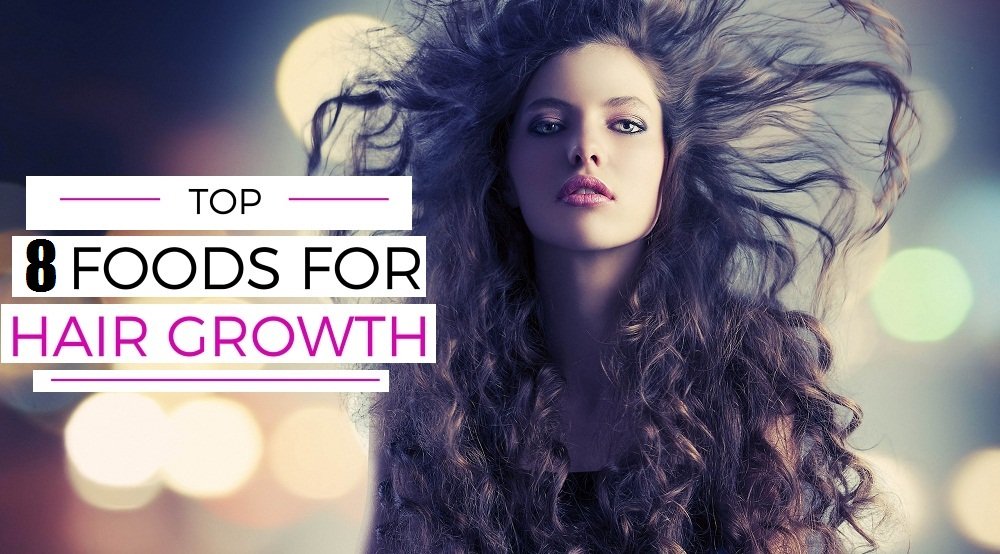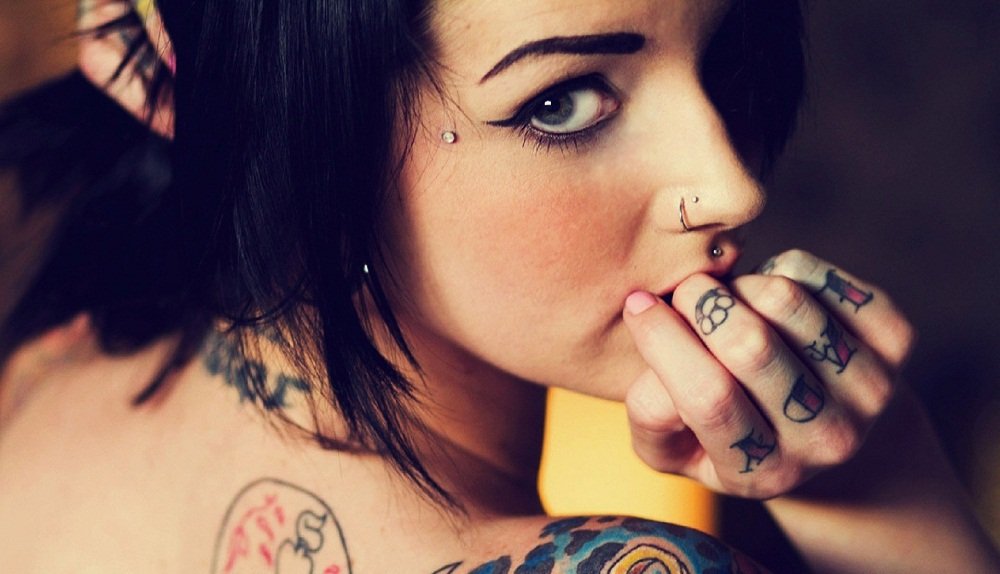Hair is one of the fastest-growing types of tissue in the human body. Most people grow half an inch per month, which is truly a staggering amount if you consider the number of hairs on the head. That kind of explosive, continual growth requires a lot of nutrients. Specifically, it needs high levels of B vitamins.
If you’ve heard that B vitamins are beneficial, but never quite understood why, then keep scrolling down. We’ll go through each of the eight types of B vitamins, and detail what each one does for hair growth.
Thiamine (Vitamin B1)
Vitamin B1 is so named because it was the first one scientists discovered, way back in 1897. Like other B vitamins, thiamine is crucial to converting food into energy. However, the vitamin is special because it’s also important to our nervous system.
In fact, this vitamin has a third name. Many people call it the “anti-stress” vitamin, because people typically suffer feelings of weakness, depression, and fatigue when they are deficient in it.
Thiamine is a major component of the myelin sheath, the insulating tissue that protects our nerves from the rest of the body, and vice versa. That’s why another symptom of thiamine deficiency is paresthesia, or a “pins and needles” sensation on the skin.
For hair, vitamin B1 is one of several vitamins that help deliver nutrients to the follicles. Hair isn’t considered a high priority by the body’s autonomic systems. If nutrients are short, then the follicles are one of the first things to shut down. That means brittle hair, thinning hair, or even baldness can quickly result if the body isn’t getting enough thiamine.
Riboflavin (Vitamin B2)

Riboflavin is a powerful antioxidant, protecting the body from damaging free radicals by forming strong bonds with them. If left unchecked, free radicals will interact with cells, including the DNA contained within. The DNA is what tells our cells when and how to divide and grow into new tissue, such as hair.
Antioxidants are typically thought of as anti-aging compounds, and the description is accurate. Free radicals will quickly cause a person’s hair to stop growing, their skin to sag and wrinkle, and for their general appearance to become aged and haggard. Most “superfoods” that are thought to keep the hair, skin, and nails looking good are classified as such because they contain high amounts of vitamin B2.
Riboflavin also acts as a team with vitamins B3 and B6. Although those two nutrients are critical to hair growth, they lie dormant in the body until the addition of vitamin B2. It’s the riboflavin that activates the other vitamins, allowing our hair follicles to make use of them.
In addition, vitamin B2 boosts the function of the immune system, keeping us from getting sick and subjecting our bodies to yet more stress.
Niacin (Vitamin B3)
Niacin is also known as nicotinic acid, although it bears no relation to the active compound in tobacco. Vitamin B3 is another important nutrient in the body’s metabolism, helping us convert fats, alcohol, and sugar into energy.
Most important to hair growth, though, is niacin’s role in maintaining our red blood vessels. The vitamin is a critical ingredient in the production of erythrocytes, and maintenance of their pathways through the body.
It’s been clinically shown that adequately high niacin levels improve blood flow across the body, most especially to the scalp. Ensuring that the hair follicles receive enough nutrients is one of the most important factors in healthy, full hair growth. All the supplements and natural food in the world won’t do any good if they can’t get to where they’re needed, and blood is how nutrients are delivered all over the body.
For the same reason, vitamin B3 is also important to skin and nails, and general health. There is strong anecdotal evidence that niacin treatments will help keep the skin moisture balanced, preventing acne and other blemishes.
On the scalp, this allows the hair follicles to work unimpeded, growing hair at peak efficiency for many years.

Pantothenic Acid (Vitamin B5)
Pantothenic acid is another one with plenty of clinical evidence showing its links to hair. Vitamin B5’s primary role in the body is turning fats and proteins into energy and nutrients.
Those are important to maintaining hair follicles in good working order, but it’s pantothenic acid’s other function that may be even more critical. When it enters the adrenal glands, vitamin B5 is one of the primary ingredients in testosterone, estrogen, and stress hormones.
All of these chemicals can seriously throw off the hair follicles if they are unbalanced, and it’s in everyone’s best interest to make sure that doesn’t happen.
Everyone, male or female, needs both estrogen and testosterone, but there is a definite “Goldilocks zone” for each gender to maximize hair growth. Produce too much or too little of either sex hormone, and hair will be one of the first things to go.
Pantothenic acid is used to create these hormones through natural means that generally self-regulate. In other words, keep your B vitamin levels optimal, and you’re unlikely to run into problems with your testosterone or estrogen. Of course, that’s barring other health problems, which may include other vitamin deficiencies.
Pyridoxine (Vitamin B6)
The next B vitamin, pyridoxine, is even more important to the production and regulation of sex hormones. Where pantothenic acid is used by the adrenal gland, a secondary source of testosterone and estrogen, pyridoxine is processed in the testes and ovaries.
Excess testosterone in the body is converted to dihydrotestosterone, or DHT. This chemical is a well-known contributor to baldness and alopecia, causing the hair follicles to simply die off and never return. When the testes are well-supplied with vitamin B6, they are able to control the release of testosterone, preventing excessive buildup that could lead to DHT production.
Pyridoxine is also a powerful anti-stress agent for the brain, improving our mood and mental acuity. It’s an ingredient in the hormones serotonin and dopamine, both of which work to keep us happy and relaxed. Mental stress is a major contributor to thinning hair, as well as more serious illnesses like heart disease. Anything we can do to stave it off is in our best interest.
Finally, like other B vitamins, B6 improves blood circulation across the body, and helps metabolize food into the nutrients that our hair follicles use to operate.
In other words, it’s a win-win.
Biotin (Vitamin B7)

Biotin has long been regarded as a super-vitamin for hair, being marketed as a “hair, skin and nails” supplement in drugstores and pharmacies across the world.
Recent science suggests that vitamin B7 may not be quite the miracle cure for baldness that we once thought, but it’s still important to healthy hair growth. Biotin is used to metabolize fats and amino acids, and is also directly used in the formation of new cells.
One type of cell that particularly relies on biotin is keratin, the tough protein that forms our hair and nails. Biotin, more than any other nutrient, is literally one of the building blocks of healthy hair.
However, it is possible to take too much of the stuff, as well as too little. New studies have shown that biotin toxicity is entirely possible, particularly with the advent of modern supplements. Holding too much biotin in the body will cause baldness just as surely as too little.
The moral is to read the labels of your supplements. They’re powerful when used correctly, but can be harmful when not.
Folate (Vitamin B9)
Folate, or folic acid, is another vitamin that helps regulate our red blood cells. B9 helps ensure that plenty of nutrients are reaching every part of the body, including the scalp and hair follicles.
Among other things, this keeps our hair from going prematurely gray. One of the main causes of gray hair is a lack of blood circulation and nutrient flow to the follicles, preventing them from producing the youthful hair we all want to keep as long as possible.
The science isn’t complete on exactly what vitamin B9 does for hair growth, but what research has been done is promising. A study at the Ontario Veterinary College of the University of Guelph found that a regimen of folic acid cured alopecia in a calf.
In humans, the data is more anecdotal, but enough people have reported good results from supplementing with B9 that it’s worth a further look.
Cobalamin (Vitamin B12)
Finally, vitamin B12 helps the central nervous system to direct all of this other activity properly. A dysfunctional nervous system can cause all sorts of serious health problems, not the least of which is hair loss.
Cobalamin is also another contributor in the creation of red blood cells and DNA. As with other B vitamins, B12 is important in that it helps those all-important oxygen and nutrients get delivered to the hair follicles, where they can be turned into keratin: the basic building block of hair.
Because hair isn’t vital to our continued survival, it’s one of the first things to go when the body suffers from malnutrition. That’s why it’s so important to stay on top of your vitamin B and other nutrients if you’re hoping to keep from going bald. There’s just no room for error; your body will shed hair long before it sacrifices the liver, kidney, or other organs.
That’s for the best, obviously, but it can still be a source of stress. So, avoid it by reading up on your vitamins, taking your supplements, and eating a varied, healthy diet.
The Ultimate Tag Team of Hair Growth
If you’ve read this far, then it must be obvious that just one B vitamin isn’t enough for hair growth. All of them work together, teaming up to keep your hair growing and body healthy.
The best thing you can do if you’re unsure of your B vitamin levels is consult with a medical professional; a blood test can determine if you’re deficient. Otherwise, it never hurts to eat more leafy green vegetables, lean meat, and other vitamin-rich foods.









